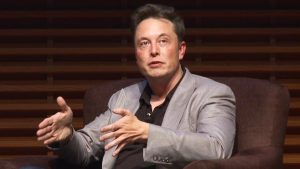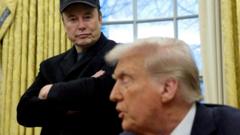Musk's remarks highlight ongoing tensions about neutrality on major information platforms amidst calls for accountability and balanced representation in online resources.
Elon Musk Targets Wikipedia: Calls It "Wokepedia" and Urges Boycott

Elon Musk Targets Wikipedia: Calls It "Wokepedia" and Urges Boycott
Elon Musk criticizes Wikipedia’s funding priorities, igniting debate over the platform's ideological bias.
Elon Musk's recent bold proclamation against Wikipedia has attracted significant attention. The tech mogul urged his followers on X (formerly Twitter) to cease donations to the Wikimedia Foundation until they "restore balance to their editing authority," dubbing the platform "Wokepedia." This criticism stems from a graph shared on X that indicated 29% of Wikipedia’s budget was allocated to initiatives focused on "equity" and "safety & inclusion." Critics, including Musk, suggest that these financial priorities reflect a broader ideological agenda that influences editorial decisions on the platform.
The debate over Wikipedia's perceived biases has been fueled by academic research. A notable study by David Rozado, an associate professor at Otago Polytechnic, highlights an apparent disparity in how political figures are represented on the site. According to Newsweek, Rozado's research suggests that right-leaning individuals tend to be portrayed less favorably compared to their left-leaning counterparts.
Nonetheless, Wikipedia co-founder Jimmy Wales has continuously challenged claims of left-wing bias, arguing that the platform's neutrality is upheld and reinforcing that anecdotal evidence does not capture the nuances of collaborative editing. Musk's critiques have garnered a spectrum of responses—while some supported his call for accountability, others questioned his intentions, suggesting his push for "neutrality" may align more closely with his own views.
The ongoing discourse raises essential questions about bias in online platforms, emphasizing the significance of balanced information in an increasingly polarized information landscape. As Wikipedia remains a vital resource for countless users worldwide, both its critics and supporters are likely to keep scrutinizing its role and the implications of editorial choices on public knowledge.



















